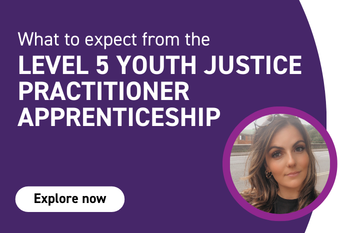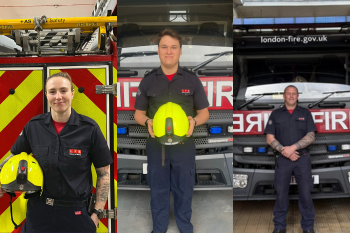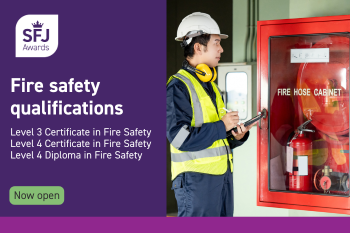A growing body of evidence suggests that lived experience is central to the delivery of a variety of frontline public services, particularly those aimed at typically hard-to-reach populations, such as drug and alcohol users and those experiencing mental health challenges.
Used to describe the knowledge acquired through direct, first-hand and personal experience of adverse or traumatic events, the government recently launched its first ever policymaking guide for civil servants, recognising the vital role lived experience has to play in the design and delivery of public policy interventions.
As the consensus grows around the importance of lived experience, the peer worker apprenticeship standard was launched in 2022 to help professionalise and provide career development opportunities for one of the most prominent job roles under the lived experience umbrella.
Earlier this year, West Nottinghamshire College’s Chloe Martin became the very first apprentice to successfully pass her End-Point Assessment with qualifications body SFJ Awards.
Speaking about her achievements, peer worker Chloe said: “I am delighted that I am the first in the country to pass the peer worker apprenticeship. I put so much time effort and commitment into my studies and it’s really paid off.”

Congratulating Chloe on becoming the country’s very first peer worker to qualify via the apprenticeship route, Nicholas Maidment of West Nottinghamshire College said: “Chloe has done an amazing job to become the first ever fully-qualified peer worker. She is a fantastic role model for our students, and we are all very proud of her here at the college.”
Marissa Lambert, People Development Manager, Nottinghamshire Healthcare NHS Foundation Trust led the trailblazer group behind the design of the peer worker apprenticeship and hailed Chloe’s achievement as an important milestone for the field and profession.
“The role of the peer worker is to building relationships or meaningful connections with professionals in hospital, justice and community settings and service users through applying the knowledge they gained from their own lived experience of different health or social problems,” said Marissa.
“The apprenticeship was created to further value and empower individuals with knowledge gained from lived experience to work side-by-side within health, justice, housing or other public functions harnessing diverse experiences and perspectives and improving outcomes for service users.
“Although it is early days, we hope that the apprenticeship will provide a solid platform for developing the skills of the workforce and bringing peer workers to greater prominence in the delivery of frontline public services.”
Kit Salt, who is Head of End-Point Assessment at SFJ Awards, agrees: “There is growing consensus regarding the value that peer workers and lived experience roles bring to health, drug, alcohol, mental health and housing services.
“The apprenticeship not only provides a career option for ex-offenders and prison leavers for example, but a training pathway for those already working in lived experiences roles to develop their skills.”





